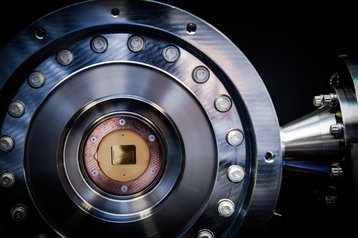Quantum computing firm Quantinuum has updated its product roadmap and announced that it will achieve universal fault-tolerant quantum computing by the end of the decade.
It includes the company’s fifth-generation quantum computer, dubbed Apollo, which it says will be a fully fault-tolerant and universal quantum system.
“We are the only company with a clear and demonstrable path that leverages quantum computing to tackle large-scale scientific and commercial applications,” said Dr. Rajeeb Hazra, CEO of Quantinuum. “With our proven record of driving technological advancement and the unwavering trust of our global customers and partners, we are confident that we possess the industry’s most credible roadmap toward achieving universal fault-tolerant quantum computing.”
He added that the Quantinuum’s next system, Helios, will support enough logical qubits to unlock scientific and mathematics advances that will surpass classical computing.
“Our roadmap then draws a direct line to hundreds of logical qubits, at which point quantum computing will outperform classical computing to address a broad range of scientific problems in areas like finance, chemistry, and computational biology,” Hazra said. “Our quantum computers are already impossible to simulate classically.”
In addition to updating its product roadmap, Quantinuum also announced that in collaboration with Microsoft, it has demonstrated 12 logical qubits on the newly updated 56-qubit System Model H2 quantum computer, the most performant logical qubits on record.
Microsoft has additionally used Quantinuum’s System Model H1 quantum computer to run the first-ever chemistry simulation using reliable logical qubits combined with AI and HPC. Both achievements are industry firsts.
The two companies have also successfully integrated Quantinuum’s InQuanto computational quantum chemistry software package with Azure Quantum Elements. That offering is now available to customers through private preview.
“The collaboration between Quantinuum and Microsoft has established a crucial step forward for the industry and demonstrated a critical milestone on the path to hybrid classical-quantum supercomputing capable of transforming scientific discovery,” said Dr. Krysta Svore, technical fellow and VP of advanced quantum development for Microsoft Azure Quantum.
Quantinuum was founded in 2021 when Honeywell spun out its Quantum Solutions division and merged it with UK quantum computing startup Cambridge Quantum Computing. Honeywell owns a 54 percent stake in the company and IBM is also an investor.
In late July, it was reported that Quantinuum’s parent company Honeywell was considering an IPO for the quantum subsidiary, reportedly seeking a valuation of around $10 billion.




